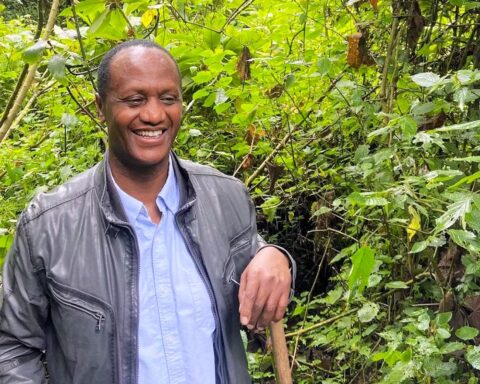Speaking Out on Human Rights is a powerful response to the right-wing backlash against human rights commissions and tribunals. In this readable book, lawyer and McGill University lecturer Pearl Eliadis details the positive contributions these commissions have made to the advancement of human rights and points the way forward to strengthening these important institutions.
[Canadians] began to believe that human rights institutions in Canada were no longer acting in the best interests of Canadians.
Speaking Out on Human Rights delves into the history of discrimination in this country, how human rights commissions and tribunals have helped, and how various forms of discrimination persist.
Yves Engler: The book is partly a response to the media frenzy towards human rights commissions spurred by two cases in 2007. Can you tell me about them?
Pearl Eliadis: The first case was the conservative online magazine Western Standard’s re-publication of one of the Danish “Mohammed-as-bomber” cartoons, and the second case involved three complaints initiated by Canadian law students against Rogers Inc. and its editor for refusing to publish a rebuttal to a string of allegedly anti-Muslim articles in Maclean’s magazine, a Rogers property. The students announced that they would be filing complaints in three jurisdictions in Canada because they argued the articles were beyond offensive and were discriminatory, painting Muslims with a broad and tarred brush, depicting them as prone to bestiality and sex with nine-year-olds.
An avalanche of articles and editorials in the media appeared, in a concerted and coordinated effort to repeal the human rights laws that regulate hate speech. Outrage against the bureaucracy of human rights commissions was not new, but the Maclean’s hate speech complaints blended free speech, the “Muslim menace,” and national security threats to create a toxic brew that brought the simmering stew of rage-against-the-government-machine to a full boil. The net result was that many Canadians, spurred on by media reports and by politicians who thought they saw an opening to attack these institutions in the name of “freedom,” began to believe that human rights institutions in Canada were no longer acting in the best interests of Canadians. It became commonplace to see public calls for the abolition of these institutions or the rolling back of human rights legislation.
[H]uman rights commissions also have a legal obligation to speak out about human rights and to promote public awareness of human rights …
YE: You quote the president of the Canadian Human Rights Reporter who cited a series of “pillar cases” from the Supreme Court of Canada that began in human rights commissions and have gone a long way in strengthening women’s, workers’, religious rights etc. Isn’t this an indication of the importance of the tribunals?
PE: The cases discussed in the quote started at the level of human rights commissions and tribunals and then made their way up to the Supreme Court of Canada. Far from being irrelevant or petty administrative tribunals, these institutions have played a leading role in developing case law that now forms the backbone of equality law in Canada and is something that we now all take for granted. These include key cases that have outlawed sexual harassment and discrimination in the workplace, and protected the rights of kids with disabilities to an education.
YE: You write about how human rights commissions are not solely about compensating claimants but also about helping to eradicate discrimination through public education. The courts, on the other hand, do not address the underlying systemic causes of discrimination, which you see as an argument for the tribunals, correct?
PE: This is an important point of the book. People often associate human rights commissions and tribunals with human rights complaints alone. This is understandable because complaints are the main point of contact with the human rights system. However, human rights commissions also have a legal obligation to speak out about human rights and to promote public awareness of human rights – these are very important parts of their mandate and fundamental to what these institutions are supposed to do as a matter of law. So when the Ontario Human Rights Commission spoke out against Mark Steyn’s writings about Muslims in Maclean’s, it was doing so as part of its legislated responsibility to speak out and to address issues of social tension independently of any human rights complaint.
I don’t think this is well understood among the public and it certainly is not a part of the work of human rights commissions that is being adequately addressed in many jurisdictions today. If people were more aware of this aspect – namely that promoting human rights is integral to what human rights commissions do – much of the so-called scandal around free speech in human rights would have been muted.
YE: For much of Canadian history a laissez-faire approach prevailed, whereby the legal system refused to palliate inequities. Can you explain how this was upended partly by social movements?
PE: There’s a sad string of cases in Canadian law where courts were unable or unwilling to do much of anything about blatant discrimination and inequality. It really took the civil rights movement and the work of the labour movement to take the bull by the horns and push society at large as well as legislators to enact protections for workers, tenants, and those seeking public services. Had it been left to the courts or elected politicians alone, not much would have happened.
It is hard to believe that anyone wants to go back to the days of refusing to serve Fred Christie a beer.
YE: Certainly the employers who’ve had human rights cases lodged against them – and who own much of the media and fund many right-wing institutions – dislike these human rights commissions. And many of those hired to be commentators in the dominant media share this sentiment, if not always openly. So it seems naïve to write, as you do, that, “it is difficult to believe that anyone would want to return to a pre-rights world or move to one where market incentives are the sole or main policy response to discrimination.”
PE: I don’t think it is naïve. It is hard to believe that anyone wants to go back to the days of refusing to serve Fred Christie a beer. And it is counter-factual: polling data mentioned in the beginning of the book shows that the only issue dearer than healthcare to the hearts of Canadians is the Canadian Charter of Rights and Freedoms. That has to say something about the distance between the “dominant media” and the average Canadian. I believe the majority of Canadians are aware that human rights are important and support them. They are central to not only our constitutional structure as the fundamental law of the land, but also to Canada’s important international human rights commitments and its multiculturalism. What does strike me as naïve is that we should, as a country, entrench constitutional rights and then assert that it is an unintended or unwanted consequence of those constitutional commitments that we would actually have to respect them.
Yves Engler is the author of seven books. His most recent is The Ugly Canadian: Stephen Harper’s Foreign Policy.
This post was republished with permission from the Montreal Review of Books.



